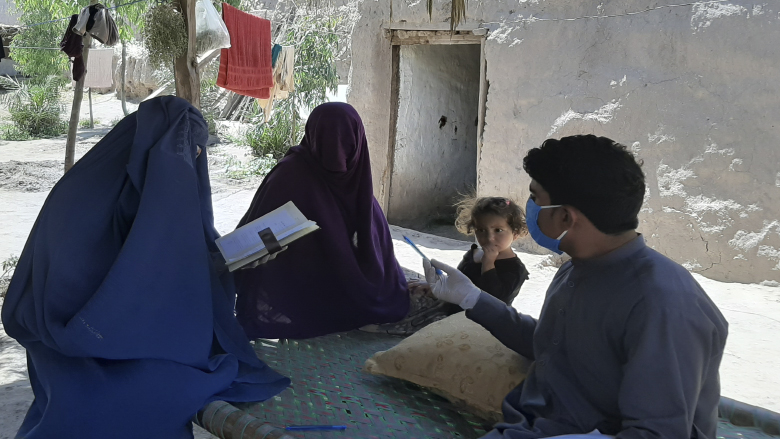Najibullah, a TUP health specialist, met with the community elders of Qala-e-Naw village and explained how taking unprescribed medicine for COVID-19 could trigger adverse side effects. Through this engagement, Najibullah and his colleagues were successful in keeping more residents from taking antibiotics.
They also described precautionary measures recommended by Afghanistan’s Ministry of Public Health and the World Health Organization, such as social distancing and face masks. Now, mullahs and other community leaders are disseminating COVID-19 prevention messages to villagers in community gatherings and mosques, while also observing these rules.
Meanwhile, health and social sector teams have encouraged villagers to use latex gloves or disposable masks only once. The village is learning to make masks from washable fabric that can be reused.
"They advised us to use masks and gloves and wash our hands frequently with soap and water," says Qamara. "We've learned that if anyone feels sick, they should stay home and contact a doctor if their symptoms worsen. We have also learned that COVID-19 spreads from one person to another, so we have to wear a mask and keep a distance of at least one meter from each other."
As part of the World Bank’s Afghanistan Access to Finance Project, TUP aims to improve the economic conditions of destitute families through livelihood support. It is implemented through the Microfinance Investment Support Facility for Afghanistan (MISFA) in the Behsood, Kama, and Surkh-Rod districts in Nangarhar province by the nonprofit WADAN (Welfare Association for the Development of Afghanistan).
Supported by the World Bank the TUP program is helping households in 6 provinces of Afghanistan to improve their living conditions. The program is currently covering over 7,000 households. Photo credit: World Bank


